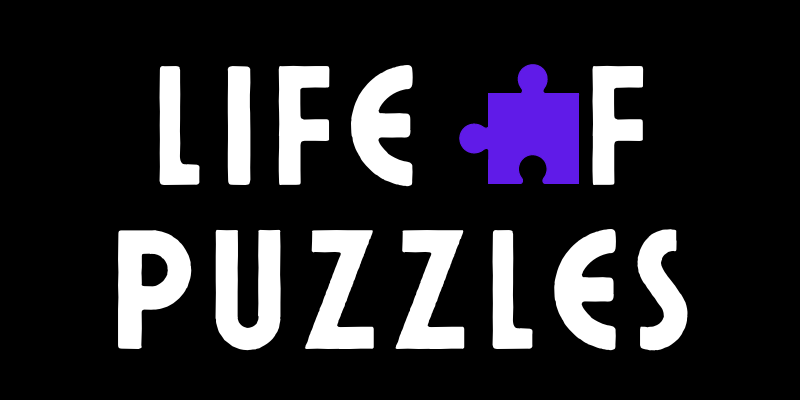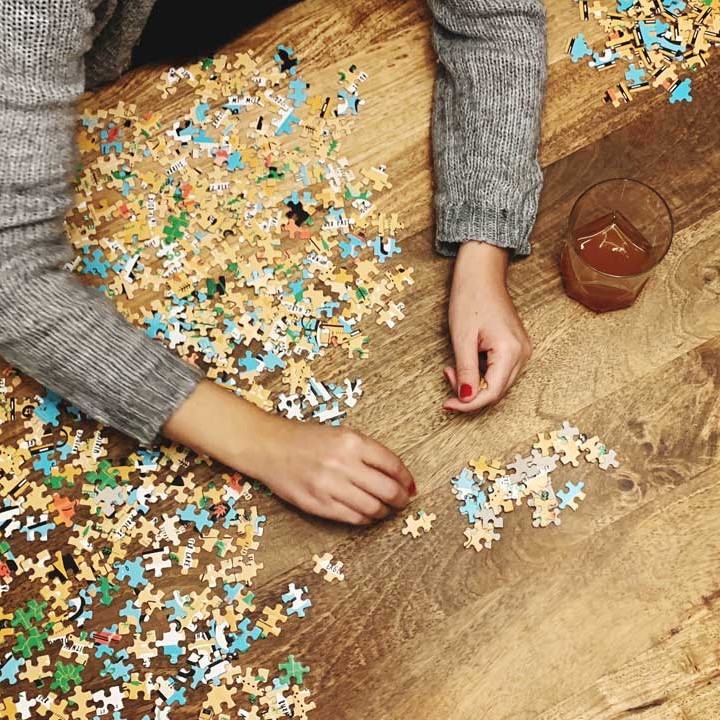
Tackling a 1000 piece puzzle can be demoralising and it’s not uncommon to just give up! It’s easy to get frustrated, but rather than tackling the puzzle in one go, breaking it out into a series of manageable tasks will keep your brain engaged and allow for constant progress. Use the tips and tricks below to help you with the 1000 pieces - just think, once you do this you’ll be able to master any puzzle size..
Time and setup..
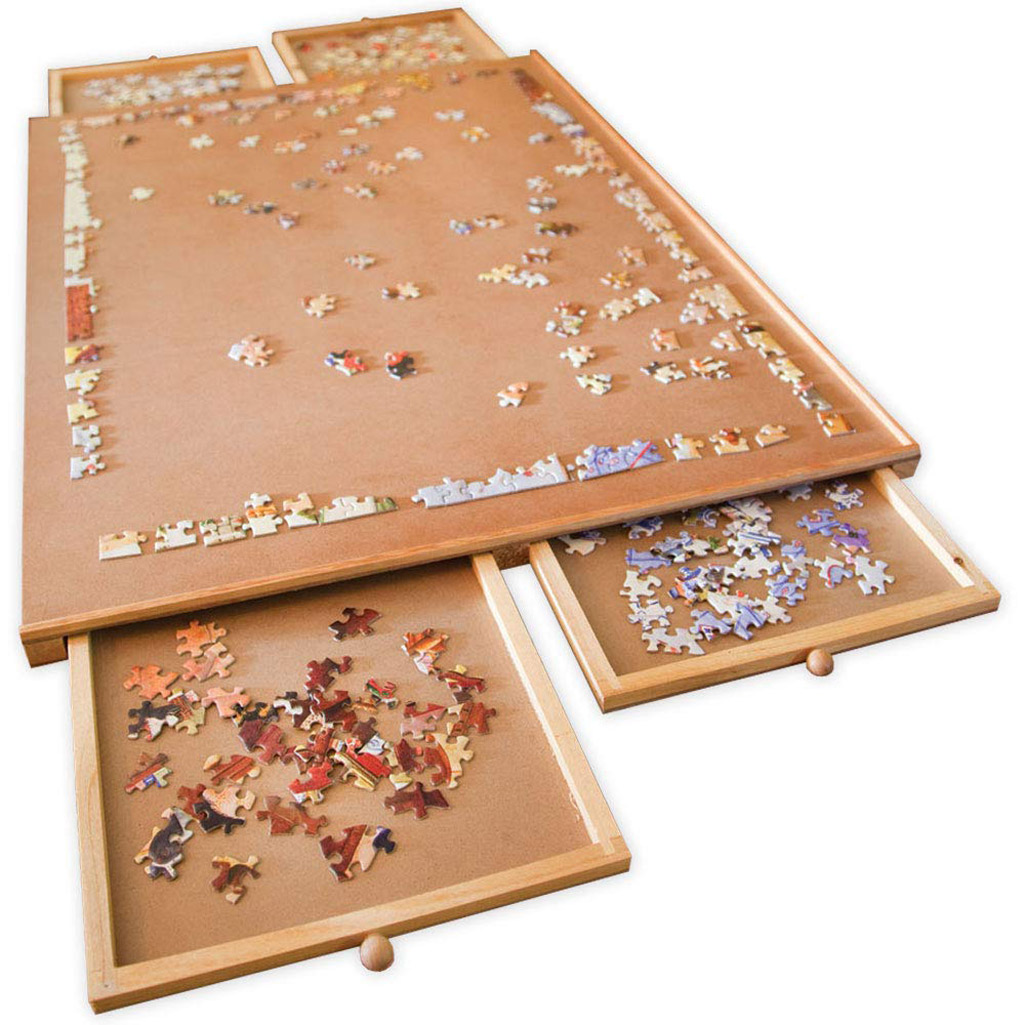
Take however long you need to complete - puzzling is a more enjoyable experience when relaxed, so make sure you take regular breaks! Bear in mind.. it will take you four times as long to assemble a 1,000 piece jigsaw puzzle than it will to do a 500 piece puzzle. Why? Well, the time it takes to complete a jigsaw puzzle is roughly in proportion to the square of the number of pieces. So this means doubling the pieces, quadruples the difficulty.
Take note of the dimensions of the puzzle and make sure you have adequate room to complete it. Having to move the puzzle to a different location may not end well..
Either a clean, flat surface like a normal dining table will do. Alternatively, if you are planning to become, or are, a puzzle addict - it may be worth investing in a standing desk or easel to place your puzzle work of art. This may help you to avoid hunching over the pieces.
Before you start..
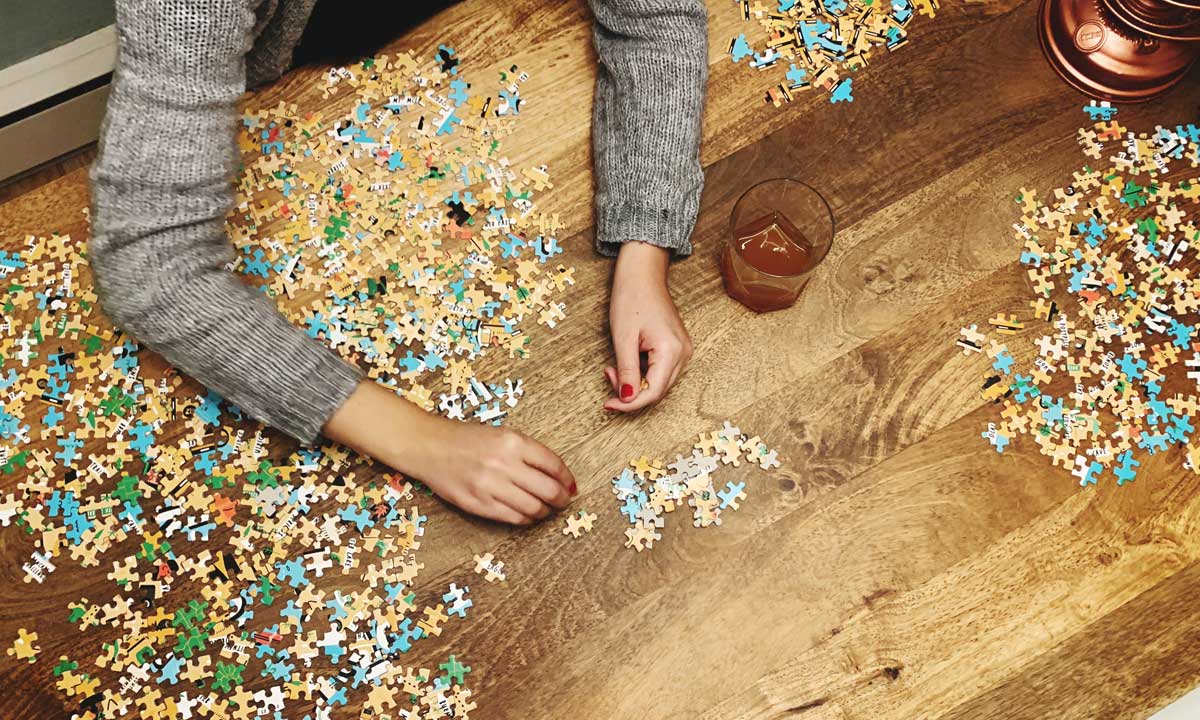
Open your puzzle and turn every piece picture-side up. This may seem tedious, but it really does make every other step a lot easier. This then reduces the overall time your puzzle will take. I know it’s tempting, but don’t jump into fitting pieces together — the probability of finding matching pieces is small.
Sort your pieces by colour and pattern. These are the most easily-distinguished features and they offer a way to break the puzzle into a series of manageable sub-tasks. Also, set aside corner and edge pieces within these groups.
Let the puzzling begin!
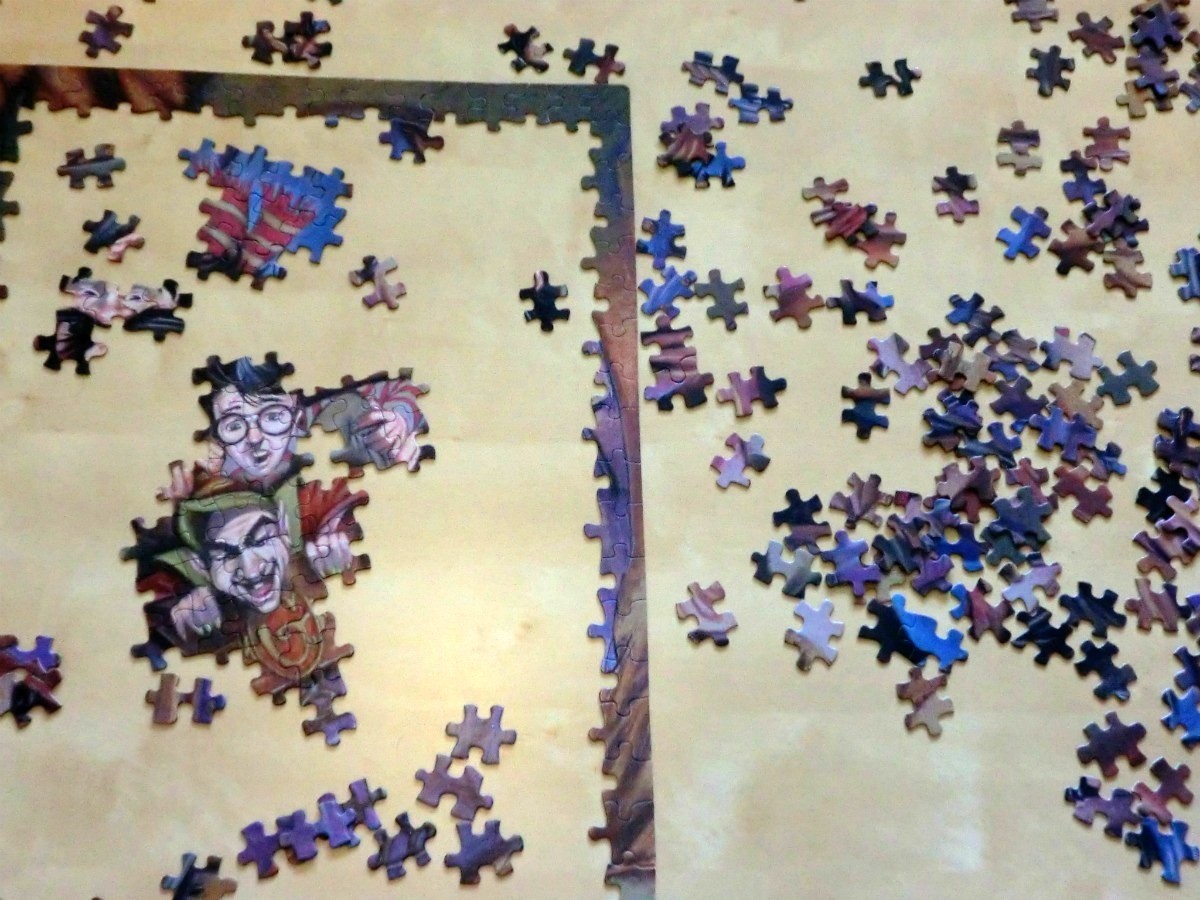
Many people like to create the border of their puzzle first. This allows you to better define your workspace and visualize the scale of each section.
Then, begin working through your segmented piles. Start with pieces that have high-contrast features that you can more easily correlate. Examples of this can include:
- Faces and groups of people
- Windows, doors, and chimneys
- Printed signs or text
- The skyline and outlines of buildings
Some of the more featureless sections of the puzzle — such as a sky, lake or field — can be left to do later.
When you have a few small clusters created from high-contrast pieces, begin extending them outwards. If you're a visual learner, it can help to place your clusters where they would be in the puzzle framework. You can also take this time to connect your clusters to the border you created.
This can be the most difficult or frustrating part of the puzzling process, as the number of clues has decreased. More than anything, don't give up! When you're tired or bored, take a break. Puzzling should be challenging, but not stressful. A fresh perspective on another day may help you find something you missed.
Completion
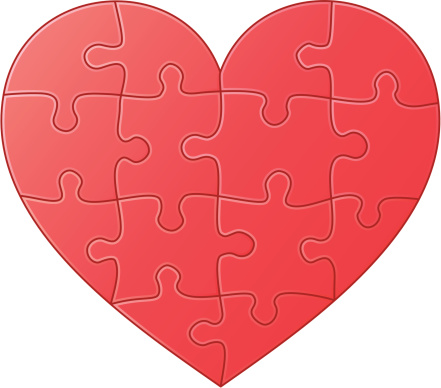
Fill in all the remaining gaps and finish your puzzle! Take some time to enjoy your work — you put a lot of effort and energy into this process, and your strategies paid off.
If you're up for it, try another 1,000 piece puzzle or even a more difficult one. As with any sport or occupation, you'll only get better with practice.
